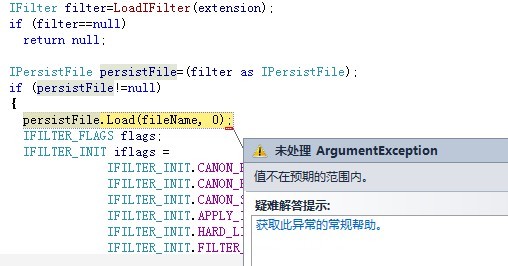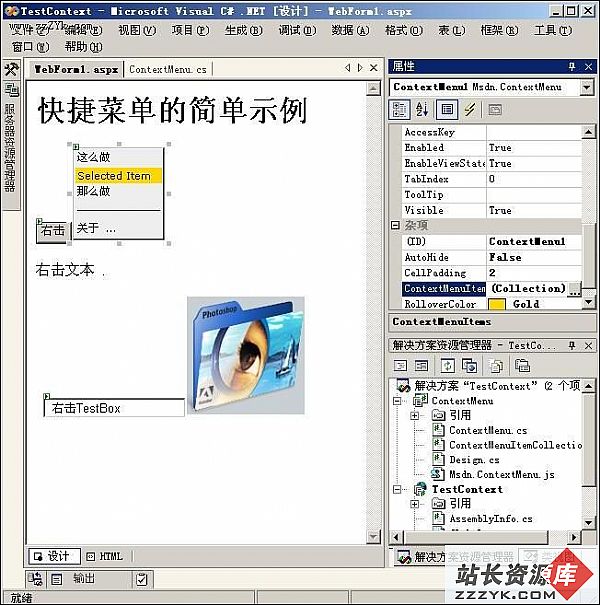当前位置:编程学习 > C#/ASP.NET >>
答案:C#揭密II(大师们在说些什么?)
先声明这篇文章属于收藏性质的,推荐给那些喜欢dotNET技术的爱好者。
这之前我曾转载了O'Reilly的一篇关于C#的访谈录。O'Reilly一向以技术和评论公见长,他们的编辑一般都有着很深的技术背景和功力(所以出的书也比较贵haha),所以那篇着重整个流行技术,有不少是和Java相关的;而这一篇都是MS内部的几个高手在交谈聊天,涉及的范围比上次的专访要广,里面有一些很新奇的术语和许多问题的观点。另外我认为这篇文章对以前非常熟悉COM+、ASP和Window DNA(N 层结构)的人目前评估和思考向新的dotNET体系迁移都很有帮助。
Anders Hejlsberg是个很奇怪的人,从他身上你感觉不到一个程序语言创始人那种对某种语言偏爱的狂热,却很容易感觉到他所透露出的那种对技术对程序语言的坚定和深厚理解。很喜欢他在上一篇访谈录中说的一句话:“Language is a funny thing: It's a matter of taste. Language is almost a religious thing, and it's a lifestyle choice for programmers。”不过我知道这句话说的不是他自己。这篇文章中还有好些人:Brian Harry,Peter Golde ,Scott Guthrie(ASP老怪),Mark Anders。有了这些人,Microsoft有福啊。
小气的神
2001.09.24
--------------------------------------------------------------------------------
Conversations on .NET
Derived from on-line chats with our early adopters, a series of conversations with Microsoft engineers, designers, and developers look at issues involving C#, ASP.NET, and the Common Language Runtime.
http://msdn.microsoft.com/library/default.asp?URL=/library/techart/dotNETconvers.htm
Summary: What follows is a series of conversations with Microsoft engineers, designers, and developers, looking at issues involving C#, ASP.NET, and the Common Language Runtime. (10 printed pages)
A Conversation with Anders Hejlsberg and Peter Golde on C#
Anders Hejlsberg is a Distinguished Engineer in the Developer Division at Microsoft Corporation. He is the chief designer of the C# programming language and a key participant in the development of the .NET Framework. Previously, Anders was the architect for Visual J++ and the Windows Foundation Classes.
Peter Golde is a Software Design Engineer in the Developer Division at Microsoft Corporation. Peter has worked on development tools at Microsoft for over 10 years, contributing to products such as Microsoft C, OLE Automation, Visual Basic, Visual Basic for Applications, and Visual J++.
Q: Peter, you attended the ECMA meetings in March. Can you disclose anything about what's going on there that is new?
Peter Golde: Sure. As some of you may know, Microsoft, Intel, and HP jointly submitted two specifications to ECMA for standardization via the ECMA process. These two specifications are the C# language and the common language infrastructure (CLI), which is a subset of the .NET Framework. We're meeting with a number of companies every month as part of the standardization process. It's difficult to predict the schedule with absolute certainty, but we hope that ECMA will be able to complete standards for both parts by the end of 2001.
Q: How does the CLI compare to the CLS and the CTS?
Anders Hejlsberg: CLS stands for Common Language Specification, CTS stands for Common Type System. The CLS is a specification of what features any programming language implemented on the .NET platform must support.
Q: OK, the CLS is less than the CTS. Where does the CLI fit?
Anders Hejlsberg: The CTS is basically another word for the type system in .NET, i.e. a specification of what a class, struct, enum, or such is. CLI is really just another word for the large subset of the .NET Framework that we submitted to ECMA.
Peter Golde: The CLI includes the CLS and the CTS.
Q: Anders, after your work on Turbo Pascal, Delphi, Visual J++ and now C#, how do you see programming languages evolving today?
Anders Hejlsberg: Jeeez, had to ask an easy one, eh? I guess I'm becoming less and less of a believer in revolutionary approaches to language design. It really is amazing how much the capabilities of computing have evolved, yet we're basically still using the same kinds of programming languages. It gives me hope that we can go even further with an evolutionary approach where we don't just invalidate all the work that went before.
Q: Have you thought much about moving toward an intentional programming model?
Anders Hejlsberg: Can't say that we have. As I see it, one of the problems of intentional programming is that you're basically creating a new programming language for every domain specific application. I really am more of a believer in having a core set of abstractions (such as classes, methods, properties, and events) and then applying them in each domain—but in a way that preserves familiarity.
Q: Customers looking at the .NET Framework for their application development efforts have asked whether or not the common language runtime (CLR) is a virtual machine (VM), and if so, what limitations or penalties associated with VMs (performance and so forth) will folks need to consider in their efforts?
Peter Golde: Yes, I think that the CLR can be considered in the broad class of things that one might call a VM. As to performance, though, I don't think that this classification says much of anything interesting about performance. You should judge performance by measuring performance on the applications that you are interested in. Don't try to prejudge performance based on your preconceptions about what will and won't be slow—just test it!
Q: Peter, are there any kind of applications that you would explicitly not build on the CLR due to issues with running managed versus unmanaged code?
Peter Golde: In terms of what applications I wouldn't write, I would say that "hard real-time" kinds of programs probably wouldn't be a good fit (at least right now), because we don't make very strong guarantees about the garbage collector, things like robot control and the like. There are real-time friendly garbage collection algorithms, so I don't think this would be a limitation forever.
Q: Can you discuss any advantages C# would have over Visual Basic (VB) in terms of the framework?
Anders Hejlsberg: Regarding C# vs. Visual Basic, it really primarily comes down to what you already know and are comfortable with. It used to be that there was a large perf difference between VB and C++, but since C# and VB.NET use the same execution engine, you really should expect the same perf. C# may have a few more "power" features (such as unsafe code), and VB.NET may be skewed a bit more towards ease of use (e.g. late bound methods calls), but the differences are very small compared to what they were in the past.
Q: Ok, can you contrast C# with VB.NET? Questions usually come in the form of "I know you guys say VB.NET and C# let you do the same thing, but C# was designed for the CLR, so I don't believe you when you say VB.NET is just as good."
Anders Hejlsberg: Regarding C# versus VB.NET, the reality is that programmers typically have experience with either C++ or VB, and that makes either C# or VB.NET a natural choice for them. The already existing experience of a programmer far outweighs the small differences between the two languages.
Q: It has been said a few times that C# is the language designed for the CLR. Considering that all the languages that Microsoft will ship with the VS.NET will be able to target all the features of the CLR, what makes C# more CLR "friendly" than the other?
Peter Golde: I don't think that C# is necessarily any more friendly to the CLR than other languages. The CLR has been designed to be accessible via multiple languages. However, you will probably find that C# is more strongly focused on the CLR than other languages like C++, which have a number of other facilities that are less oriented toward the CLR. By designing C# in conjunction with the CLR, we have the &quo
上一个:C# 中如何自定义事件?
下一个:C#介绍





